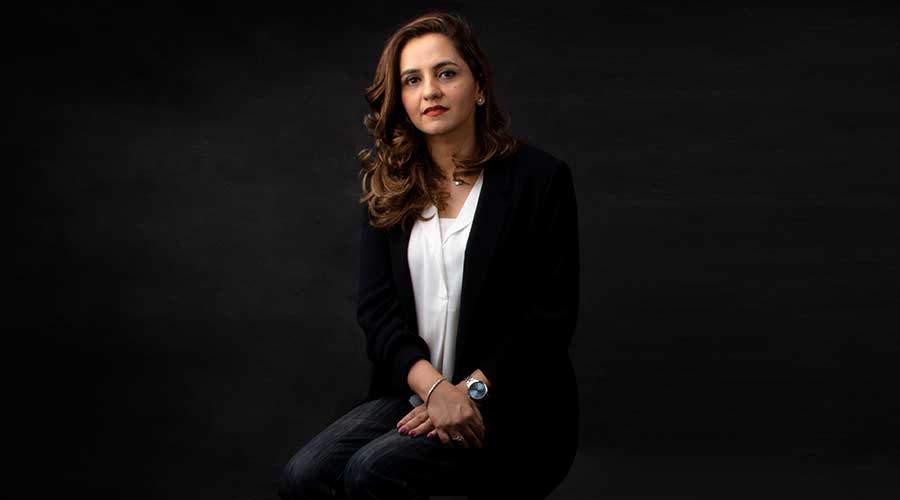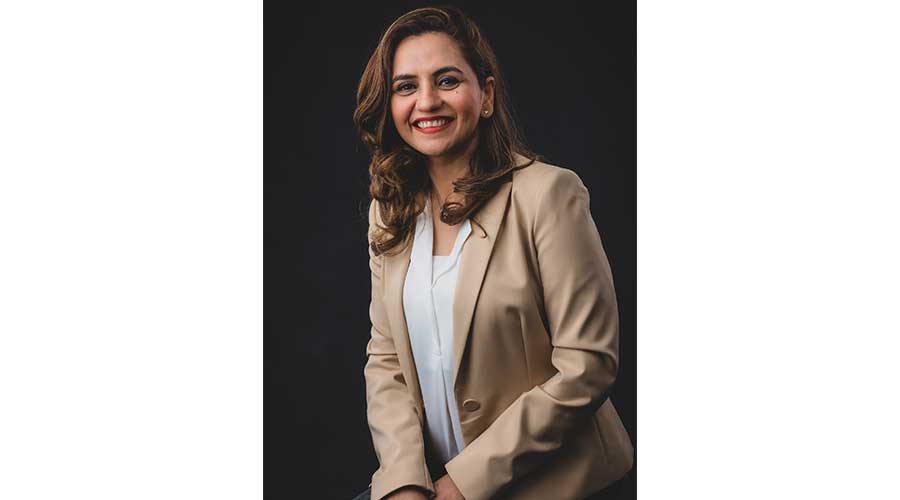THREADS OF SUCCESS
- 06 Apr - 12 Apr, 2024
Having roots in the field of writing and education, Saira Danish started her career with sheer passion for the profession. Today, after successfully spending nearly 22 years in academia, she has conquered the field by leaving behind a legacy of students who have been superbly excelling in the discipline of Arts and Designs. At present she is leading the Fashion Design Program at the Imperial Tutorial College and also manages a digital platform, Karachi Collective that aims to archive the glorious artistic heritage of Pakistan. She is also member of the editorial board of JADEP and advisory committee of the IVS Foundation program. The awe-inspiring educationalist talks to MAG about her journey in the business of education and why it is important to prepare fashion graduates for local market. Excerpts:

I come from a family with a long history in education and writing. My great grandfather, Maulvi Nazir Ahmad Dehlvi, was an established Urdu novel writer, social and religious reformer. My grandfather, Dr Masoom Ali Tirmizi, was the former vice-chancellor of the University of Karachi (KU). My grandmother, Dr Nasima Tirmizi, was a noted marine scientist, writer, and former Dean of the University of Karachi's Science faculty. My mother, Azra Tirmizi, was a college teacher too and currently settled in the US she has taken to some writing assignments which have been published too. So genetically, I have an inclination towards education and teaching.
I have a diploma in Fine Arts from Karachi School of Art, an undergraduate degree in Humanities (History and Political Science), and I have two post graduate degrees: the first one in History from Karachi University (Pakistan) and the second one in Art and Design Education from the University of New South Wales (Australia), so I ended up developing and designing curriculums for a number of reputed art and design academic institutes in Karachi as well besides teaching. My husband, Danish Ahmed, is in the academia too so I decided to pursue a career in education on his advice. He received an offer to teach at a very reputable art and design school, but he was already affiliated with another art college, so he referred me to that position - and from there, my journey in teaching began (well over twenty years from now).
I've certainly noticed a huge difference since I started teaching almost 22 years ago. Back then, students used to take a keen interest in the subject and would sit through a three-hour class. Their attention span has become limited, so they tend to become bored easily and quickly. Technology has made things easier for them so they lack the will to explore new possibilities, to ideate and innovate. Obviously, this does not apply to all students. There are some great minds in my class, and I learn from them each day.
My teaching methodology has evolved over time. I have to change it for a variety of reasons, including the students' mindset and behavior, but there are also other factors that force me to change my teaching methods.
I had the opportunity to teach high school students at the Karachi American School (KAS) for four years after which I went abroad to pursue my higher studies. Whatever I learned there made me question the teaching methods I've encountered here as a student and a teacher. Students in American schools are allowed to make mistakes and learn from them. Later, I went to UNSW, Sydney for my higher studies. Here, the pedagogical methodologies I absorbed from, and consequently implemented at KAS, were reinforced.
To begin, we must recognize that times have changed and that we must adapt in order to remain relevant. The subjects I teach are mostly theoretical, including History of Art, Contextual Studies in Fashion and Textiles. Often students shun from theory classes, and I completely understand that theory can becoming boring. So, to maintain their interest in the subject, I engage with different teaching methodologies and mediums including lots of exciting visuals through PowerPoint, short documentaries, and sharing of information linked to real life experiences. I engage with history and theory through story telling. Ofcourse, there is a lot of reading involved, oh well! Sadly (and fortunately) that bit has to stay. However, in order to make reading interesting I utilize the Pomodoro Technique. Also, we take a lot of co-curricular trips to acclimatize the theoretical knowledge with real life experiences.
As you may know IMAGE Pakistan is an exclusive name in the world of fashion and pret wear. It is a high-end retail brand which boasts of premium quality, both in terms of material and embroideries. Since Imperial Tutorial College (ITC) is an affiliate partner of IMAGE Pakistan, the college is directly linked to the industry. The need for the institution arose when decision-makers realized that there was a gap between the academia and the industry. The curriculum taught at colleges offering fashion and textile design programs, often lacks co-agency with the local economic bodies who are the key players and movers and shakers of the textile industry. ITC was set up to link the curriculum with the industry. The curriculum developed at ITC, along with Nisantasi University through the transnational education plan (TNE), is unique. Our students not only engage with knowledge and learning in a comfortable classroom environment, and robust studios bursting with energy, but also via industry placements through the strong internship program the college offers.
We have a very distinctive curriculum designed here that allows students to be trained by foreign qualified faculty while also gaining experience working with a professional master sahab. Since we are affiliated with Nisantasi University in Turkey, and also the local industry, students learn both international and local methodologies required in this field; to give you a simple example- our students learn to take measurements both in cms (an international practice) but because there is mastar sahab in the studio they know how to brief him on measurements in inches. Through him they learn the local jargons and methods, whilst through their teachers they learn about international and local practices alike. We encourage them to enroll in internships, this way they gain experience and understand how the corporate world operates. These are minor details, but they make a significant difference when working in the real world.
So, we have two programs here: an Associate Degree Program (ADP) in Fashion Design, and then there is a Bachelor's Degree in Fashion Design. ADP is a two-year external programme, and students can convert this degree to a full-time Bachelor's Degree by completing two more years at ITC.
To enroll in the ADP program, the candidate must pass intermediate or clear a minimum of 3 A levels subjects. There is an admission test comprising a drawing and written test. If they clear the test they are invited for an interview.
The tuition fee is Rs 175,000 per semester, plus a one-time admission fee of around Rs 30,000 and ITC Resources fees of Rs 20,000 (per semester). We also have a strong scholarship programme in which we offer four scholarships per semester, with two students receiving a full scholarship based on their financial need. The other two are awarded a 50% and 20% discount on their tuition fee, respectively.

The Karachi Collective, also known as TKC, is my brain child. I am the Founder and Editor-in-Chief of the digital platform. During Covid, I wanted to start a blog. My husband, who is not only an Associate Professor at the Indus Valley School of Art and Architecture, is also a practicing artist; and, I am an art critic and writer. We both often spoke on the need to document all that was happening in the world of arts, design and interdisciplinary humanities. There was no formal digital platform to archive all the wonderful and exciting initiatives taking place in Pakistan. So, we created this platform with the intention of documenting, creating and preserving art and design archives. We have extended the initiative to include archives and projects taking place not only in Pakistan, but also in South Asia and its diaspora. It was set up in 2021 and today it is functioning as a full-fledged digital platform that aspires to stimulate and propel research alongside substantial documentation. The focus is on art, design and creativity in the city of Karachi as its epicenter and to extend to regions beyond its borders.
I want to give advice to students and parents both. Let me give advice to parents first: be supportive and allow your children to pursue their interests. In today’s technological age there is scope in every field – they only need to be passionate about whatever they do and you need to be their backbone. Secondly, make your girls independent too, financially and otherwise, so they don’t have to look up to others at the time of crisis. For the students I just need to give the following advice: do whatever you want to do, as long as you are passionate about it and it doesn’t challenge your values. If you follow your passion, money and fame will follow you, they are a byproduct of hard work and passion, not vice versa; and there is no such thing as instant gratification in the real world. There are no short cuts. If you want to be happy with the career you want to pursue then pick the one you are super passionate about!
COMMENTS